Three Biden Administration Publications Give Multisector Collaboration Its Due
The Biden administration published an important trio of publications affirming the importance of multisector collaboration across social care, health, and public health systems, and we at DASH could not be more pleased.
Making plans with the SDOH Playbook
In late 2023, the Biden Administration released the US Playbook to Address Social Determinants of Health and two HHS companion pieces, a call-to-action entitled Addressing Health Related Social Needs in Communities Across the Nation and a RAND report, Community Care Hubs: A Promising Model for Health and Social Care Coordination.
Together, these pieces offer unequivocal support for the notion that social determinants of health (SDOH) are pivotal in determining individual health outcomes, and that multisector collaborations are key for healthier communities and individuals. The publications offer sound, evidence-supported theoretical backing, multiple real-world examples, and reminders and recaps of steps the administration has already taken.
We are delighted that the Biden administration is making the case for a national effort to connect social, health, and public health care.
The Playbook recommends three pillars for innovation and intervention:
expanding data gathering and sharing;
supporting flexible funding to address social needs;
and supporting “backbone organizations” that can manage partnerships across sectors, such as community care hubs (CCHs).
The call-to-action details specific actions various stakeholder groups can take in each of those three pillars in order to move the nation toward better health and stronger health systems.
Finally, the RAND report highlights the community care hub as a model for backbone organizations and offers six case studies of CCHs in action.
The DASH Framework and the Playbook’s pillars
DASH has worked since its inception to bridge social care data, health data, and public health data to improve the lives of the individuals represented in all that data.
We are excited to see this concept studied, prioritized, and supported on a federal level. We are also pleased to see in these new publications the processes and themes captured in our DASH Framework:
The left-hand side of the Framework is all about building the foundation of trust needed for successful Multisector collaborations. Trust is mentioned throughout the Playbook and its companion pieces as essential and is at the heart of the third pillar. Backbone organizations such as CCHs are established community presences trusted by community members, by peer organizations, and by organizations in other sectors, and they can catalyze and maintain this trust piece. For more on backbone organizations, take a deep dive into the RAND report.
The middle part of the Framework comprises several requirements of a healthy multisector data ecosystem, including data governance and sustainable finance. The Playbook has built two of its three pillars around these concepts. The call-to-action is your publication if you are interested in the actions stakeholders can take around data ecosystem components.
We believe that, through building a foundation and strengthening data ecosystems, and with support from overarching external forces in the form of regulatory, legal, and financial support from government entities (the top portion of the Framework) such as those outlined in the Playbook, our public health system and our nation’s health can achieve a systems change toward equity and access.
A stakeholder group that must not be left behind
The Playbook publications offer ideas and support for community-based organizations (CBOs), health systems, payers, health departments, and health IT professionals. Note one stakeholder group is missing: the community members themselves.
The value of involving the community is mentioned in the Playbook and the report, but is not fully explored. Power sharing – involving community in planning and decision making – is essential for fully realizing the equity imperative present throughout the Framework.
Several current and upcoming DASH initiatives are focused specifically on the relationships between CBOs and people with lived experience, and we are excited to contribute to and extend the national conversation through our efforts.


